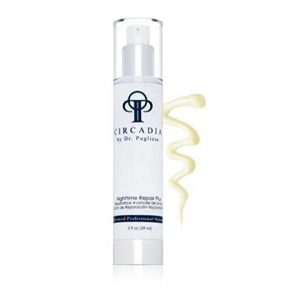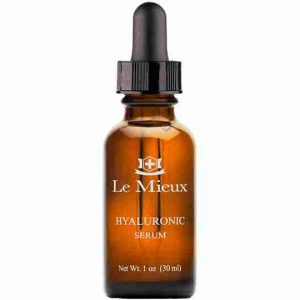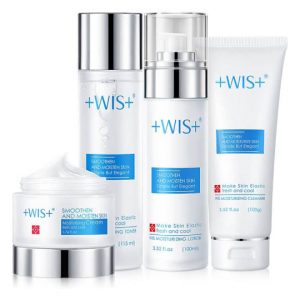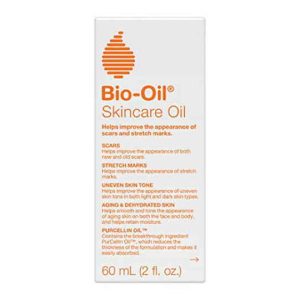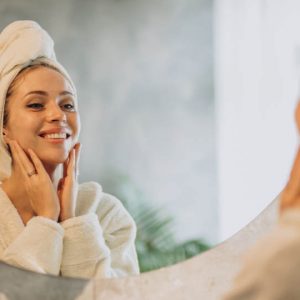
How Is a Teen’s Skin Different From an Adult’s Skin?
To be able to talk about teen skin care in a way that will make sense, we first have to talk about the differences between a teen’s and an adult’s skin. So, let’s start with structural changes. Your skin frequently regenerates while you’re a child. The frequency of renewal does, however, decrease as you approach your adolescence. Teenage skin is typically more durable and resistant than that of children who are not yet teenagers.
With that being said, when you reach your teenage years, your skin is still elastic and capable of fast regeneration. Because in this stage, your facial skin has a lot of collagen, the most abundant protein in your body. However, collagen production declines as you get older. Your skin becomes more prone to drooping, fine lines, and wrinkles as a result.
And addition to that, your body experiences hormonal shifts that can cause a variety of skin issues. The increased production of sebum, or oil, in your skin may be the most noticeable alteration. Overproduction of oil and perspiration retains dirt and makeup traces within your skin cells. And eventually, these all lead to acne outbreaks and blocked pores. Though, to be honest, acne breakouts might still be a problem even after reaching the adult years.
Of course, adults experience this skin problem less frequently, assuming they don’t have a health condition or poor diet selection. Plus, women are more prone than males to get acne as adults because of hormonal changes that occur during pregnancy and menstruation. Adult hormone levels, on the other hand, usually level out and become more stable, leading to less severe kinds of acne.
How To Deal With Acne as a Teen?
Considering that acne seems like a teen’s first and biggest enemy, let’s first address that before moving on to teen skin care tips. Because how should a girl take care of her skin when all the hormones and stress cause acne breakouts every day? As we mentioned above, a pimple develops when sebum, a form of oil that normally lubricates the skin and hair, clogs the pores in the skin.
When hormones are in overdrive throughout puberty, the skin produces excessive sebum, which leads to acne. And our most breakout vulnerable area is the T-zone since there are several oil-producing glands there. But by following some simple teen skincare steps, you can avoid acne breakouts as much as possible. For starters, you can wash your face with warm water and a gentle soap designed for acne sufferers.
Lightly use circular strokes to massage your face, but never scrub. Because you might irritate your skin from overwashing, so, do this no more than two times a day. After cleansing, the American Academy of Dermatology advises using a moisturizer containing benzoyl peroxide. And I am sure you have heard this plenty of times before, but this is the most important part; avoid popping pimples!
How To Deal With Pimples?

Although it’s enticing, you should never try to pop your pimples because pushing contaminated material further into the skin by popping pimples can cause more irritation, redness, and even scars. In many cases, a dermatologist may treat a pimple for you with reduced risk of infection or scarring if you spot it developing before an important event like a friend’s gathering or a school trip.
Besides, how much you touch your face or let your phone touch your face, know that you will attract that much sebum and skin dirt. Because the bacteria that cause irritated and inflamed pores can be transferred by touching your face. This is also why, before putting anything on your face, such as treatment creams or makeup, you should wash your hands to prevent the spread of bacteria.
To prevent oil from clogging the pores around your eyes and nose, make sure to clean any glasses or shades you wear regularly. Additionally, try to avoid wearing tight clothing if you have acne on your body. They may irritate the skin as well as prevent it from breathing. Caps, headbands, and scarves may all gather mud and grease. If you started wearing any, make sure to remove your makeup before going to bed.
Sleeping with makeup is also a big problem for adult skin, so if you can remove makeup before bed as a habit, you will benefit from that as an adult too. Be careful to purchase from makeup companies with noncomedogenic or non-acnegenic written on the packaging. If your old makeup has a different scent or appearance than when you first got it, throw it away without giving it a second thought.
Also, you might like your hair untied and free, but to stop residue and oil from clogging your pores, you should keep your hair tidy and away from your face as much as possible. And lastly, always use sunscreen, even when it’s winter. This is one of the most important steps of any skincare routine because tanning damages the skin, raising your chance of skin cancer and eventually causing wrinkles.
What Should a Teen Skin Care Routine Include?
To decide what your teen skincare routine should include, you first need to determine your skin type. Because for example, if your skin is dry, a program designed for oily skin can not be as effective. So, let’s check out the skin types before diving into the teen skincare routine. The first skin type we will examine is normal skin.
If your skin has a smooth texture, an even, clear skin tone, and no noticeable flaky, red, or blemished patches, it means you have normal skin. The skin’s surface is neither greasy nor dry, and there are hardly any visible pores. Because there is an appropriate balance of water and oil, as well as good blood flow, normal skin has minimal flaws.
If this is the case for you, you are one of the luckier ones, which means that it will be enough for you to wash your face two to three times daily with a gentle cleanser or just soap and water. However, if your skin has nearly undetectable pores and is dull, flaky, scaly, and irritating, it means you have dry skin.
And the main cause of dry skin is abnormal shedding of skin cells from the outer layer of the skin. In typical circumstances, the body’s natural oils act as lubrication to assist stop water loss from the skin. So, if this is the case for you, you should make sure to wash your face with a gentle cleanser. This will lessen the likelihood of your skin drying out.
And after washing, you should also moisturize with an unscented, alcohol-free cream. Apart from that, limiting your exposure to extreme heat, high temperatures, and low humidity, which dehydrate your skin, can also help. Dryness is exacerbated even by soap use and heavy washing or scrubbing, so avoid using these kinds of products, especially when the humidity is low in the winter.
Keep away from soap and other drying products. When you get out of the tub, pat your body dry before applying mineral oil, available at most pharmacies and grocery stores, or a non-scented, alcohol-free moisturizer or ointment to your skin. Dry off your skin once more. The cream or oil keeps the skin supple and silky by helping to seal in healing moisture.
What If You Already Have Oily Skin?
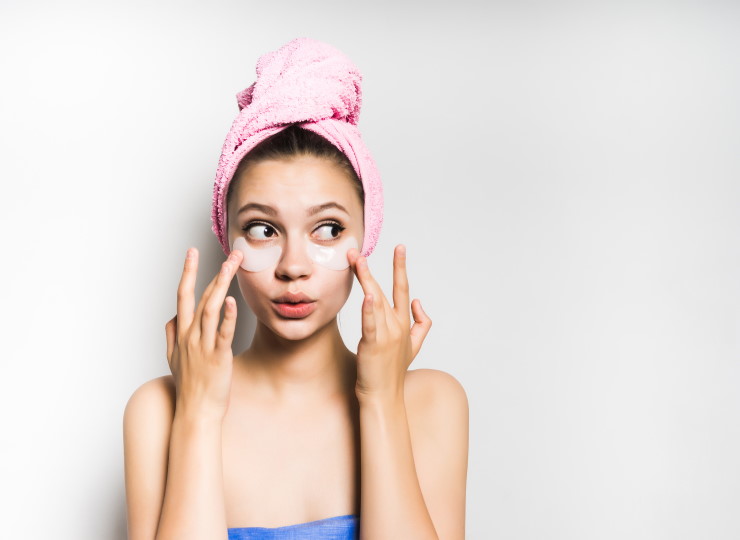
Now, this brings us to oily teen skin care, the most acne-prone skin type with large pores, a shiny appearance, pimples, and lots of blackheads. For the ones with oily skin, anything that alters your hormone levels may have an impact on your skin because hormones regulate oil production. According to some experts, stress from things like exams may lead to acne problems.
Wash your face with simple soap and water three times every day to keep greasy skin clean. Use an over-the-counter cleansing pad to assist breakdown oil and remove extra filth from the skin surface if you need to wash your face at school. Remember, you should never pinch or pop a pimple because this might spread the irritation and make acne worse.
Use noncomedogenic cosmetics and other facial products to avoid pore clogging. Keep your hair away from your face, and wash it every day to get rid of the oil. Using a mild lotion on your skin will help it more easily withstand the drying effects of acne drugs, even though it may seem counterintuitive. But what if you don’t feel like any of these apply to you? What does this say about your skin type?
This means you have combination skin, one of the most demanding skin types to care for. However, you are not alone. All of the aforementioned skin types combine to create combination skin. The T-zone (the forehead, nose, and chin) may be highly oily while the rest of your face is dry. You can have open pores and blackheads.
The cheeks may appear dry and harsh when compared to the other areas, which are dripping with sebum and natural oils. So, if this is the case for you, you should cleanse your face with soap and water. Only apply moisturizer to dry areas; stay away from greasy areas. Apart from these, there are some other important steps to add to your teen skincare routine to protect your skin in the best way possible.
One of the most important of these steps is being careful with what you eat. I know in these stages of life, keeping a well-balanced diet is not very doable. But, limiting greasy foods and sweets as much as possible and eating more fruits, vegetables, and foods with good fats like nuts can make a big difference. In addition to that, drinking enough water will also help your skin glow and wash away the excess oil that attaches itself to your skin from underneath.
Conclusion
To sum up, building a specialized teen skincare routine for yourself is not hard as it seems. However, I understand how exhausting it can be with all the other things you have to deal with. But, think of it this way; you are already stressed out, and your skin problems cause you to be more stressed.
But this is actually something you can control with a little bit of effort. And at the end of the day, you will see that your skin is improving, which will lower your stress level. And if you think nothing you do is working, remember that you are not alone, and you can always consult a dermatologist if you have concerns about acne.
A dermatologist can assist you in determining the best treatment option for you and provide you with a wealth of practical advice on managing acne and taking care of your skin type. Estheticians, and educated skin specialists, are available in some salons and spas and can provide recommendations and skin care services.
